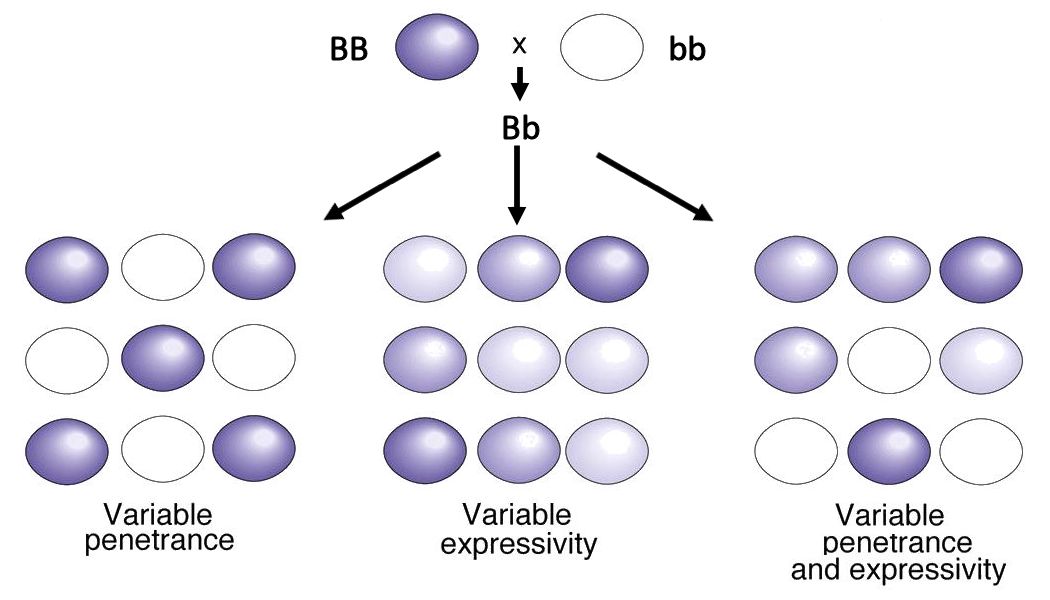
Penetrance versus Expressivity
Egg colour of the endangered Hawai'ian Oo'Aa bird is controlled by a single locus, BLU, where the B allele is dominant to the b allele. As part of the recovery strategy, a pure-breeding blue-egg bird (BB) from one island is crossed with a pure-breeding white-egg bird (bb) from another island. Because all the offspring are Bb heterozygotes, they are all expected to show a uniform, blue phenotype like that of the BB parent. However, if penetrance and / or expressivity vary, three patterns of variation that differ from expectation are possible.
If penetrance varies [left], the Bb genotype sometimes does not penetrate through to the phenotype: some Bb eggs are blue just like those of their BB parents, others are white like those of their bb parents, despite presence of the B allele. "Lack of penetrance" is sometimes used to explain individuals whose phenotypes do not reflect their inferred genotypes, e.g., a dominant trait that appears to "skip" a generation in a pedigree
If expressivity varies [middle], the Bb genotype will not be expressed uniformly in the phenotype: all eggs are blue, but the exact shade of blue varies among individuals with the same genotype. Variable expressivity is frequently attributable to environmental factors or variation at gene loci elsewhere in the genome.
If expressivity and penetrance both vary [right], there may be a continuous gradient of phenotypes between white and blue eggs. Note that lack of penetrance can be considered as an extreme from of expressivity, in which the range of expression includes non-expression.
*HOMEWORK: In the penetrance example, how would you distinguish the results of a Bb x Bb cross from those of a cross Bb x bb cross, where the parents are blue and white respectively, and half the offspring are blue Bb eggs and half are white bb eggs?